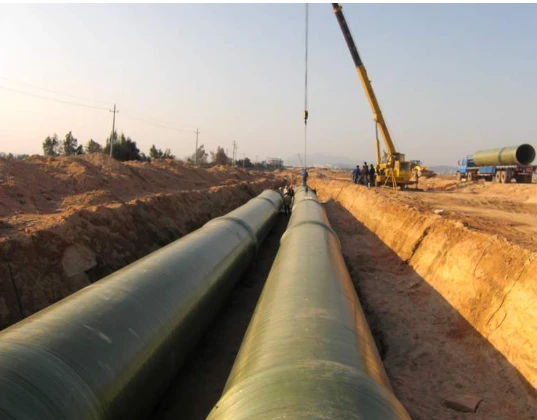
-
 Afrikaans
Afrikaans -
 Albanian
Albanian -
 Amharic
Amharic -
 Arabic
Arabic -
 Armenian
Armenian -
 Azerbaijani
Azerbaijani -
 Basque
Basque -
 Belarusian
Belarusian -
 Bengali
Bengali -
 Bosnian
Bosnian -
 Bulgarian
Bulgarian -
 Catalan
Catalan -
 Cebuano
Cebuano -
 China
China -
 China (Taiwan)
China (Taiwan) -
 Corsican
Corsican -
 Croatian
Croatian -
 Czech
Czech -
 Danish
Danish -
 Dutch
Dutch -
 English
English -
 Esperanto
Esperanto -
 Estonian
Estonian -
 Finnish
Finnish -
 French
French -
 Frisian
Frisian -
 Galician
Galician -
 Georgian
Georgian -
 German
German -
 Greek
Greek -
 Gujarati
Gujarati -
 Haitian Creole
Haitian Creole -
 hausa
hausa -
 hawaiian
hawaiian -
 Hebrew
Hebrew -
 Hindi
Hindi -
 Miao
Miao -
 Hungarian
Hungarian -
 Icelandic
Icelandic -
 igbo
igbo -
 Indonesian
Indonesian -
 irish
irish -
 Italian
Italian -
 Japanese
Japanese -
 Javanese
Javanese -
 Kannada
Kannada -
 kazakh
kazakh -
 Khmer
Khmer -
 Rwandese
Rwandese -
 Korean
Korean -
 Kurdish
Kurdish -
 Kyrgyz
Kyrgyz -
 Lao
Lao -
 Latin
Latin -
 Latvian
Latvian -
 Lithuanian
Lithuanian -
 Luxembourgish
Luxembourgish -
 Macedonian
Macedonian -
 Malgashi
Malgashi -
 Malay
Malay -
 Malayalam
Malayalam -
 Maltese
Maltese -
 Maori
Maori -
 Marathi
Marathi -
 Mongolian
Mongolian -
 Myanmar
Myanmar -
 Nepali
Nepali -
 Norwegian
Norwegian -
 Norwegian
Norwegian -
 Occitan
Occitan -
 Pashto
Pashto -
 Persian
Persian -
 Polish
Polish -
 Portuguese
Portuguese -
 Punjabi
Punjabi -
 Romanian
Romanian -
 Russian
Russian -
 Samoan
Samoan -
 Scottish Gaelic
Scottish Gaelic -
 Serbian
Serbian -
 Sesotho
Sesotho -
 Shona
Shona -
 Sindhi
Sindhi -
 Sinhala
Sinhala -
 Slovak
Slovak -
 Slovenian
Slovenian -
 Somali
Somali -
 Spanish
Spanish -
 Sundanese
Sundanese -
 Swahili
Swahili -
 Swedish
Swedish -
 Tagalog
Tagalog -
 Tajik
Tajik -
 Tamil
Tamil -
 Tatar
Tatar -
 Telugu
Telugu -
 Thai
Thai -
 Turkish
Turkish -
 Turkmen
Turkmen -
 Ukrainian
Ukrainian -
 Urdu
Urdu -
 Uighur
Uighur -
 Uzbek
Uzbek -
 Vietnamese
Vietnamese -
 Welsh
Welsh -
 Bantu
Bantu -
 Yiddish
Yiddish -
 Yoruba
Yoruba -
 Zulu
Zulu
Innovative Applications of Molded Fiberglass in Modern Manufacturing Processes
Molded Fiberglass Transforming Industries with Versatility and Durability
Molded fiberglass, often referred to as fiberglass reinforced plastic (FRP), has become a cornerstone material in various industries due to its remarkable mechanical properties and versatility. This composite material is created by combining glass fibers with a resin matrix, which, when cured, forms a lightweight yet incredibly strong structure. This article explores the characteristics, advantages, and applications of molded fiberglass, showcasing why it has garnered immense popularity across different sectors.
One of the standout features of molded fiberglass is its exceptional strength-to-weight ratio. Unlike traditional materials such as metal or wood, which can be quite heavy and prone to corrosion or rot, molded fiberglass offers a durable alternative that is not only lightweight but also resistant to environmental elements. This makes it an ideal choice for applications where weight is a critical factor, such as in the automotive and aerospace industries.
Another significant advantage of molded fiberglass is its resistance to chemical corrosion. Unlike metals that can rust or degrade when exposed to harsh chemicals, molded fiberglass remains intact and performs well in industrial environments. This characteristic makes it particularly valuable for industries such as chemical processing, water treatment, and construction, where exposure to corrosive substances is commonplace. The ability to withstand harsh environmental conditions ensures the longevity and reliability of products made from molded fiberglass.
molded fiberglass

The manufacturing process of molded fiberglass allows for a high level of customization. This adaptability is a major draw for industries requiring unique shapes or designs. The material can be molded into complex geometries, which makes it suitable for a wide range of applications, from boat hulls to architectural elements. Furthermore, the flexibility in design means that engineers can create components that are tailored to specific functional requirements, thus enhancing performance and efficiency.
In addition to its practical characteristics, molded fiberglass also offers aesthetic benefits. With advances in manufacturing techniques, fiberglass components can be produced in a variety of finishes and colors, providing designers with creative freedom. This aesthetic versatility is particularly appealing in consumer products, where visual appeal is often as important as functionality. From surfboards to musical instruments, molded fiberglass has found its way into an array of artistic and commercial applications.
As industries continuously seek materials that are both efficient and environmentally friendly, molded fiberglass stands out as a sustainable choice. Its long lifespan reduces the need for frequent replacements, thus minimizing waste. Moreover, advancements in recycling technologies are allowing for the repurposing of fiberglass materials, further contributing to sustainable practices within manufacturing.
In conclusion, molded fiberglass is a transformative material that is reshaping various industries with its unique properties. Its strength, lightweight nature, chemical resistance, and aesthetic flexibility make it an invaluable resource in modern manufacturing. As technology evolves, the applications of molded fiberglass will expand further, solidifying its role as a crucial element in the quest for innovative and sustainable materials in the future. Whether in construction, automotive, aerospace, or consumer products, molded fiberglass is undoubtedly a material for the ages.
Latest news
-
Exploring the Benefits of Top Hammer Drifter Rods for Enhanced Drilling PerformanceNewsJun.10,2025
-
High-Precision Fiberglass Winding Machine for GRP/FRP Pipe Production – Reliable & Efficient SolutionsNewsJun.10,2025
-
FRP Pipes & Fittings for Shipbuilding - Corrosion-Resistant & LightweightNewsJun.09,2025
-
Premium FRP Flooring Solutions Durable & Slip-ResistantNewsJun.09,2025
-
Premium Fiberglass Rectangular Tanks Durable & Lightweight SolutionNewsJun.09,2025
-
Tapered Drill String Design Guide Durable Performance & UsesNewsJun.09,2025









